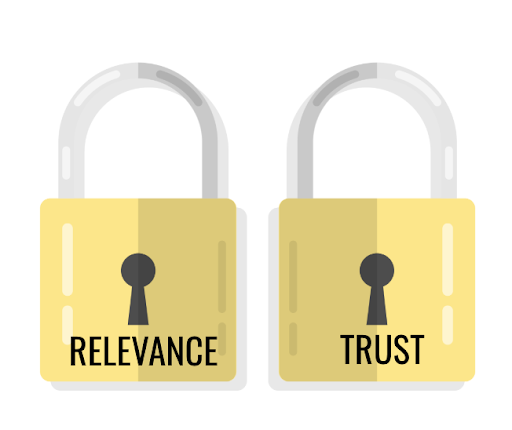Regardless of what your sales strategy is, you need to have some type of post-sales retention strategy.
Matt Tennison, VP of Business Development and Partners at Boostability, joins George this week on the Conquer Local podcast to discuss retention. Matt gave such an insightful presentation at Conquer Local that we had to have him on the podcast to share it with our audience. He walks us through the four keys to retention; Point of Sales Strategy, Post Sales Engagement, Sales Training, and Product Sales Support. Matt and George dig deep into each key to retention, and provide examples and best practices.
Listen to the full episode here.
The Goods on Matt Tennison
Tennison has over 20 years of experience in the marketing and advertising field and over 15 years of experience in high-level business development and partner relations. Throughout his career, Matt has worked for large advertising publications and national agencies, where he achieved great success in advertising sales, business development, and sales management. Prior to joining Boostability in 2011, Tennison ran an advertising agency for eight years, where he became very familiar with both traditional marketing methods and digital marketing techniques. He has an intimate understanding of the small business marketplace and an expertise in forging high-performing partner relationships.
Takeaways
It costs 5x more to acquire a new customer than it does to retain one. Yet, most companies spend the majority of their marketing dollars on finding new customers instead of nurturing the ones they already have.
Before we outline the 4 Keys to Retention, here’s a little background information. Tennison looked at his eight years working with Boostability and working hand-in-hand with partners. He made observations of what he has seen in regards to retaining clients because retention is the crux for most of his partners.
“As we deal with partners that range anywhere in size from the small one-man website design agency to national Yellow Pages companies, on up to global hosting and domain registrar companies, and everything in between. It's surprising to see some of the misses, as well as some of the areas of success that all of these very diverse set of partners have in common.”
- Matt Tennison, VP of Business Development & Partners
Key 1: Point of Sales Strategy
Product Knowledge.
Begin by laying out the basis of the client experience and the client journey when you sell to the client. The way to look at this is defining what is the core value of the product that you're selling, how do you break that down into super simple terms, and how do you express it over and over. You would begin to actually lay down the consistent messaging and terminology that your client will expect to hear at every touchpoint they have along their client experience.

Mastery through simplicity. We need to know the product well enough that we can break it down into simple, value driven elements that any SMB can understand. When we train people how to sell a product, we must train them on the basis of relevance and trust.
Key 2: Post-Sales Engagement & Reselling
Set it and forget it is not a winning strategy.
One of the bigger offenders in post-sales engagement is how poorly sales organizations go around and resell to their clients. Sometimes they just forget. A digital product is established generally on some type of a contracted basis, whether it be a 6-month or a 12-month contract. A good amount of clients that have churned over the years churn because someone simply forgot about them. You need to be reselling your clients on your product, whether it's relevance and trust or the value of the product itself.
Clients need to be told the value story over and over and over. There needs to be a mechanism in place that alerts sales organizations or alerts clients services organizations when these clients are coming up on their contract end dates. This way someone can give them a phone call, or pay them a visit and say, "Hey, Mr. Customer, I want to talk to you about the value and the success you've had in your campaign and talk about how we can keep this moving forward for you into a new term.
Key 3: Sales Training
Product mastery through simplicity.
Being a master of your product means that you can break it down into the simplest terms possible, and own a conversation where you keep it on that simple path. One can only control a conversation to a certain degree, even when you really know what you're talking about. But the more you know, the more you can simplify things and the more you can direct the conversation to where you want it to go. At the end of the day, your salespeople should never be product people. Salespeople should be salespeople.
“Salespeople should be talking about value, features, advantages, benefits, how a product is going to make the client more money, and how it's going to drive more customers. It should never be a conversation that's based on jargon, industry terms, and fancy technical terms. Leave that to the product folks and to the client services folks if and when that client wants to get into deeper conversations. As a salesperson, you own the conversation by keeping it super simple.”
- Matt Tennison, VP of Business Development & Partners
As a salesperson, if you're not focused on the core value elements like relevance and trust, then you're not enabling your salespeople. You're leaving salespeople to their own devices to go out and educate themselves. It holds true that salespeople will educate themselves on the most irrelevant, least important things because they want to sound educated and fancy, when in reality it should be all about the value.
Key 4: Product Sales Support
Two heads are always better than one.
Here’s how a product sales support role should work: If you're on the phone talking to a client, and you get into a place where you simply can't direct the conversation to where you want it to go, maybe the questions are becoming too deep, or the line of discussion isn’t centered around value, then you can call in on a product sales support line and bring someone on board who plays a specific role. They play the role of a person who can take a deeper dive and get into the more technical discussion.
Two different perspectives, two different opinions. Product Sales Support creates more credibility all the way around and it allows the salesperson to stay focused and specialize in what they're supposed to be talking about, which is value. This allows the product sales support to get in the weeds and discuss specific details. Then the salesperson can actually sit back, strategically listen to the conversation, and then reinsert themselves right at the key times when the client is giving buying signals.
Advice from Matt
“In my years of sales, one of the biggest things that you can say to someone that generates trust in you as an expert, and it's going to sound totally oxymoronic, is to use the phrase, ‘I don't know.’ I'm a sales guy, in what world does that make me a digital products expert? To say the words, ‘I don't know.’ It creates the idea that this guy really does care about listening to me and answering my questions, and that he's not just going to make something up."
- Matt Tennison, VP of Business Development & Partners
Subscribe to the Conquer Local Podcast.


 By
By